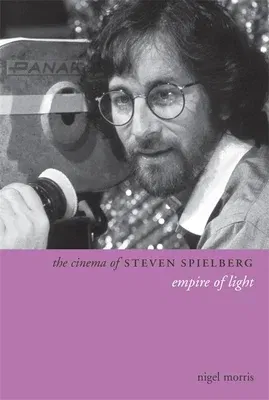Nigel Morris
(Author)The Cinema of Steven Spielberg: Empire of LightPaperback, 13 February 2007

Qty
1
Turbo
Ships in 2 - 3 days
In Stock
Free Delivery
Cash on Delivery
15 Days
Free Returns
Secure Checkout

Part of Series
Directors' Cuts
Print Length
224 pages
Language
English
Publisher
Wallflower Press
Date Published
13 Feb 2007
ISBN-10
1904764886
ISBN-13
9781904764885
Description
Product Details
Author:
Book Format:
Paperback
Country of Origin:
IN
Date Published:
13 February 2007
Dimensions:
23.57 x
15.85 x
3.05 cm
ISBN-10:
1904764886
ISBN-13:
9781904764885
Language:
English
Location:
New York
Pages:
224
Publisher:
Series:
Weight:
789.25 gm